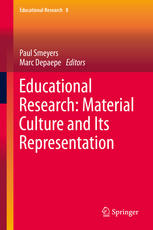

Most ebook files are in PDF format, so you can easily read them using various software such as Foxit Reader or directly on the Google Chrome browser.
Some ebook files are released by publishers in other formats such as .awz, .mobi, .epub, .fb2, etc. You may need to install specific software to read these formats on mobile/PC, such as Calibre.
Please read the tutorial at this link: https://ebookbell.com/faq
We offer FREE conversion to the popular formats you request; however, this may take some time. Therefore, right after payment, please email us, and we will try to provide the service as quickly as possible.
For some exceptional file formats or broken links (if any), please refrain from opening any disputes. Instead, email us first, and we will try to assist within a maximum of 6 hours.
EbookBell Team

4.7
86 reviewsThis collection discusses and illustrates how educational research is affected by the economic, institutional and physical contingencies of its time, and in our time even increasingly is driven by them. It is argued that the antidote to this is, however, not to aspire to ‘thought itself’, but instead to do justice to its own rootedness in the ‘material’, including textuality. From an historical point of view such an innovative approach can itself revamp the material scholarly culture and the way it is represented. The chapters address a variety of topics such as the cultural heritage of the school desk, the significance of images for research into long-term educational processes, the way iconic signs function, and how modes of enquiry relate to the materiality of education. Attention is also given to standards for reporting on educational research studies and how these limit the scope and communication and moreover shape researchers, to the forms of citation practices as substantially influencing methods and content, and to the centrality of conversation not just as the means to an end but as what matters; further to representational and to non-representational theories for educational research. Some examples are drawn from the area of arts-based educational research, from mathematics education, and from the discourse on universities.